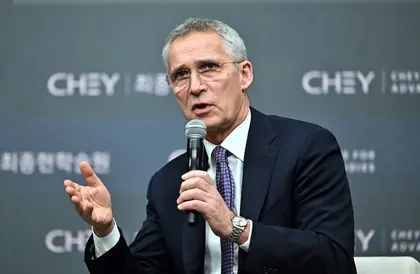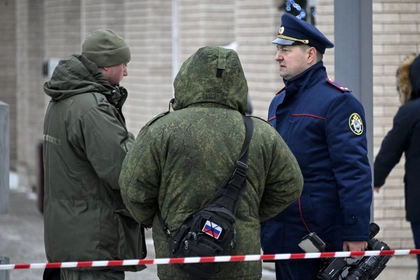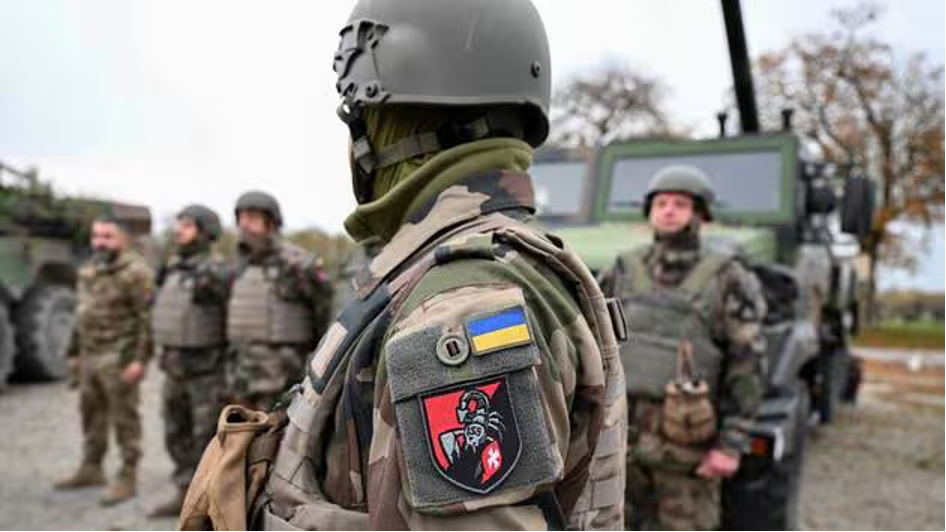NATO Secretary General Jens Stoltenberg asked South Korea on Monday, Jan. 30, to "step up" military support for Ukraine, suggesting it reconsider its policy of not exporting weapons to countries in conflict.
Stoltenberg is in Seoul on the first leg of his Asia trip, which will also take in Japan, as part of a drive to boost ties with the region's democratic allies in the face of the Ukraine conflict and growing competition from China.
JOIN US ON TELEGRAM
Follow our coverage of the war on the @Kyivpost_official.
He met top South Korean officials Sunday, and on Monday urged Seoul to do more to help Kyiv, saying there was an "urgent need for more ammunition".
He told AFP that while South Korea and Japan were "providing significant economic support to Ukraine", regional allies needed to recognize that global "security is interconnected".
Were Russian President Vladimir Putin to win the war, it would "send a very dangerous message to authoritarian leaders all over the world", he said during an interview in Seoul, with "direct consequences" for security and stability in Asia.
He pointed to North Korea "providing rockets and missiles to the Wagner group" -- something that Pyongyang has angrily denied, with state media saying Monday that Stoltenberg's Asia trip was bringing the region "close to the extreme security crisis".
- 'They need weapons' -
South Korea has provided non-lethal and humanitarian aid to Kyiv, and since the invasion has signed deals to sell hundreds of tanks to European countries, including NATO-member Poland.

Trump Will Talk to Putin, Zelensky About Bringing The War To an End | Bohdan Nahaylo
But Seoul has long-standing policies against the export of weapons to governments in active conflict, which it has said makes it difficult to provide arms directly to Ukraine.
Stoltenberg said Germany and Norway, among others, had similar policies in place that were revised after Putin invaded Ukraine in February last year.
"If we believe in freedom, democracy, if we don't want autocracy and tyranny to win then they need weapons," he said, speaking at the Chey Institute in Seoul.
South Korea opened its first diplomatic mission to NATO last year.
President Yoon Suk-yeol, who met with Stoltenberg, said the NATO chief had "expressed appreciation for Korea's continued support" on the Ukraine conflict, according to a readout released by Yoon's office.
"President Yoon wrapped up the meeting by saying that he would continue to play a possible role in cooperation with the international community to help the people of Ukraine," it added.
- China challenge -
Stoltenberg told AFP that his visit to Seoul and Tokyo was "not about expanding NATO into the Asia-Pacific" but it was crucial that democratic allies cooperated more.
"Cyber is a global threat, terrorism has been a global threat for many decades, space is becoming more and more contested, which is truly global," he said.
Regional security issues also affect Europe, he added. "The nuclear programs of North Korea are also NATO's problem, because stability in this region matters for us."
"And then, of course, China, with heavy investments in new modern nuclear capabilities, long-range missiles, of course behavior in the South China Sea -- all of this matters also for NATO allies.
"So this idea that we can have a kind of regional security doesn't apply any longer. Security is global. And that is something also NATO has to take into account."
You can also highlight the text and press Ctrl + Enter






